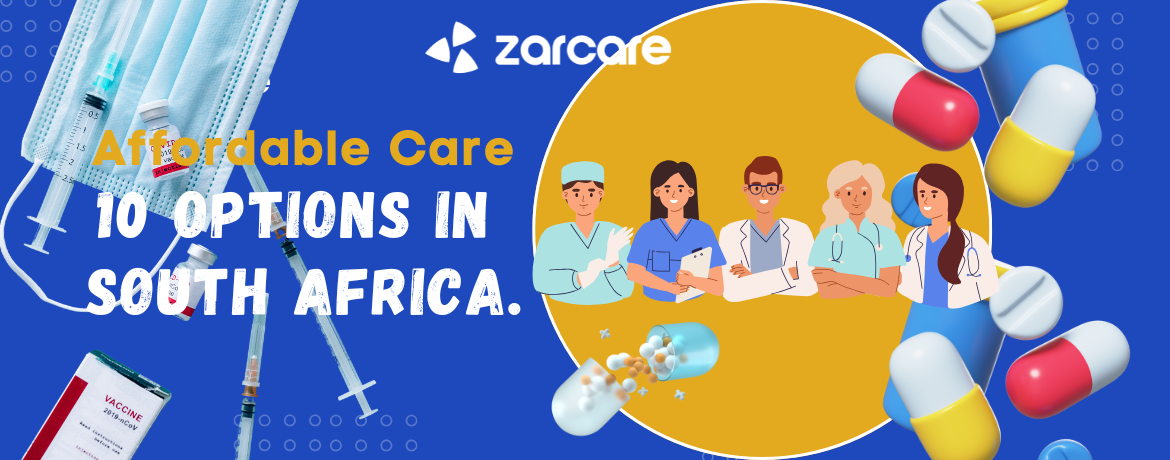Affordable healthcare in South Africa is a critical issue, given the country’s mixed public and private healthcare systems. Here are some ideas and options to explore within the topic of “Affordable Care” in South Africa:
1. Public Healthcare System (NHI – National Health Insurance)
- Overview: The South African government has been working on implementing the National Health Insurance (NHI) system. This aims to provide universal access to healthcare services, funded by taxes and contributions.
- Affordability: While still in development, the NHI promises to make healthcare more accessible and affordable for all South Africans, regardless of their income level.
- Challenges: Long waiting times, underfunded facilities, and staff shortages are often cited issues within the public system.
2. Community Healthcare Centres (CHCs)
- Overview: CHCs offer primary healthcare services at low or no cost, including treatment for common illnesses, vaccinations, and maternal health services.
- Affordability: These centres play a vital role in providing low-cost healthcare to underserved populations, especially in rural areas.
3. Private Medical Insurance
- Overview: Private healthcare insurance is widely available but often expensive. However, there are affordable plans such as entry-level hospital plans and network-based options.
- Options:
4. Health Insurance Alternatives
- Overview: Some companies offer cheaper alternatives to traditional medical aid, like day-to-day health insurance plans or gap cover.
- Affordability: These are ideal for individuals who can’t afford full medical aid but still want coverage for specific healthcare needs.
5. Government Subsidized Programs
- Free Health Services for Children & Pregnant Women: The South African government provides free healthcare for children under 6 and pregnant or breastfeeding women at public healthcare facilities.
- Subsidised HIV and TB Treatment: South Africa offers free or subsidised treatment for HIV/AIDS and tuberculosis, including access to antiretroviral medication.
6. Telemedicine and Online Healthcare Platforms
- Overview: With technological advancements, South Africans can now access telemedicine services, which provide consultations with doctors online at a fraction of the cost of in-person visits.
- Affordability: These services reduce travel costs and can be more affordable than traditional healthcare.
7. NGO and Charity-Based Healthcare Initiatives
- Overview: Non-profit organisations, like Doctors Without Borders and Right to Care, offer free or low-cost healthcare services, especially in underprivileged areas.
- Affordability: They target vulnerable populations and provide essential services such as primary healthcare, vaccinations, and disease management.
8. Generic Medications and Pharmacy Programs
- Overview: Generic drugs, which are far cheaper than brand-name medications, are widely available in South Africa.
- Pharmacy Programs: Many retail pharmacies offer affordable medication and over-the-counter healthcare solutions, such as Clicks’ and Dis-Chem’s loyalty programs, which often provide discounts on medication.
9. Health Savings Accounts (HSAs)
- Overview: Some financial institutions offer health savings accounts to encourage people to save for future medical expenses, providing a way to plan for unexpected healthcare costs.
10. Preventative Healthcare Initiatives
- Wellness Programs: Encouraging preventative healthcare through wellness programs, regular checkups, vaccinations, and lifestyle adjustments can reduce the need for costly medical treatments in the future.
Conclusion
Affordable healthcare options are available through a variety of pathways, each addressing different needs and financial circumstances. While offering essential services at little to no cost, the public healthcare system faces challenges such as overcrowded facilities and long wait times. However, ongoing developments like the National Health Insurance (NHI) aim to enhance access to quality care for all citizens. Private medical insurance and alternatives such as hospital plans and network-based options provide more flexibility and faster service at varying price points for those who can afford it.
Community healthcare centres, government-subsidized programs, and telemedicine platforms, like Zarcare, offer accessible, affordable care to underserved populations, reducing the need for expensive private treatments. NGOs and charity initiatives are also critical in extending healthcare to the most vulnerable. Finally, cost-saving measures like generic medications, pharmacy programs, and health savings accounts empower individuals to manage their healthcare costs effectively.
Ultimately, combining public and private solutions, while promoting preventive care and wellness, can create a more sustainable and affordable healthcare system for all South Africans.
Sources:
1. 5 Best Cheapest Medical Aids under R500 https://medicalaid.com/medical-aids/cheap-medical-aid/
2. Preventive Care Is a Crucial Component of Modern Healthcare https://www.keyhealthmedical.co.za/preventive-care/
3. Generic Drugs: Questions & Answers https://www.fda.gov/drugs/frequently-asked-questions-popular-topics/generic-drugs-questions-answers
4. Telemedicine for healthcare: Capabilities, features, barriers, and applications https://pmc.ncbi.nlm.nih.gov/articles/PMC8590973/

